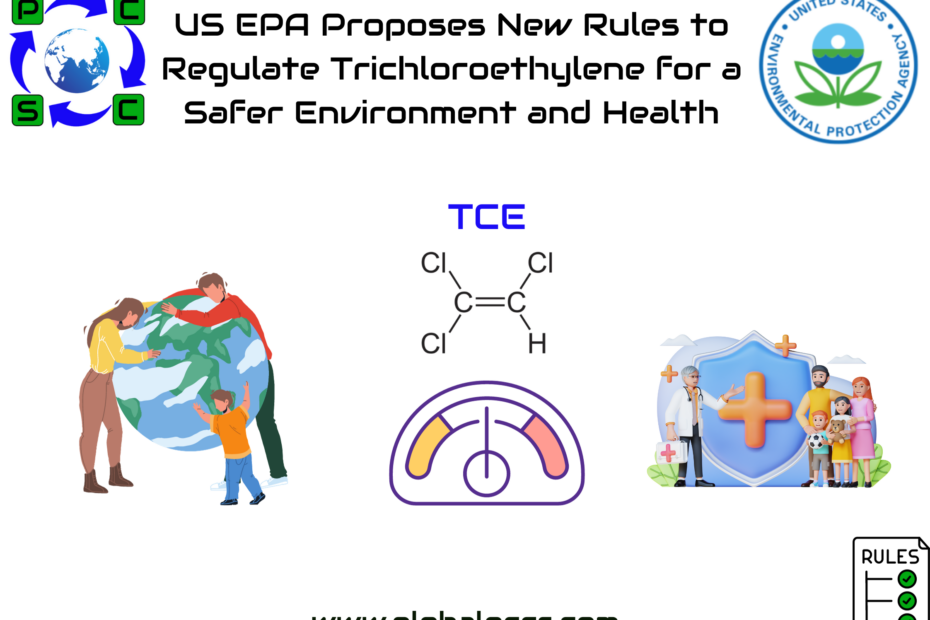
The Environmental Protection Agency (EPA) has announced a proposed rule aimed at addressing the potential harm to human health posed by trichloroethylene (TCE). This widely-used chemical, found in various industrial, commercial, and consumer applications, has raised concerns about its effects on health and the environment.
TCE is a solvent that is used in degreasing, lubricants, and hydrofluorocarbon manufacturing. It has been connected to serious negative health effects. These consequences include toxicity to the liver, kidneys, nervous system, immune system, reproduction, development, and several types of cancer. TCE is regarded as a neurotoxicant and has been shown to cause cancer in people when exposed to it in various ways.
The following actions are part of the EPA’s proposal to reduce these risks:
- Prohibiting the manufacture, import, processing, and commercial distribution of TCE for all applications.
- Implementing longer compliance timeframes and workplace controls for certain uses of TCE, with proposed phaseouts and time-limited exemptions.
- Banning the disposal of TCE in industrial pre-treatment, industrial treatment, and publicly owned treatment works, with a limited exemption for cleanup projects.
- Establishing recordkeeping and downstream notification requirements
These regulations aim to ensure the safety of both human health and the environment by reducing the exposure to TCE and its associated risks.
The proposal seeks to fulfill the requirements of the Toxic Substances Control Act (TSCA) by addressing the unreasonable risks posed by TCE.








 Authorised IMDS & CDX Training & Consulting partner for
Authorised IMDS & CDX Training & Consulting partner for






